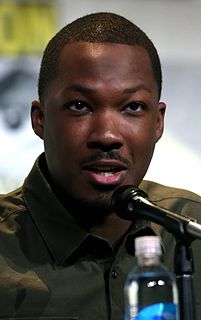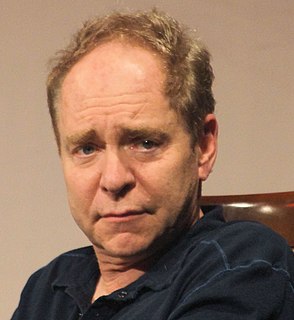A Quote by Jo Brand
I do say no to lots of things, actually! I know it doesn't look like it. But I have a tendency to a) be rubbish at saying no, and b) be pushed by some kind of Protestant work ethic.
Related Quotes
I learned really early on that I had to treat it as if it were a real job. This might be my middle class background - the Irish work ethic, which isn't quite the same as the Protestant work ethic - but still, it's, 'Get a job and show up every day. Be there. And don't complain. Who do you think you are: you're nobody special; go to work.'
Yeah, it's odd when you look back at your own work. Some filmmakers don't look back at their work at all. I look at my work a lot, actually. I feel like I learned something while looking at stuff I've done in terms of what I'm going to do in the future, mistakes I've made and things at work or what have you.
I used to say things like, 'My name's not Al (Bundy), you know?' Not to the press, but to fans. 'My name is actually Ed.' I'd find myself saying that, and I'd think, 'Who do you think they think you are? They only know you from that!' And finally I just got...I don't know, I guess a switch went on for me, and I realized, 'This was the greatest job that you've ever had in your life. Why are you acting like an asshole?' So from that minute on, I kind of...well, I hate the word 'embraced,' but I just kind of went, 'Yeah, okay.' 'So you're Al, right?' 'Yep!'
Some men are deeply likable but have attitudes I don't like. Does that mean I should completely dismiss them? It's like saying: if someone votes Tory can you like them? And, yes, I can. I have friends who vote Tory, and I'm appalled, but that's not to say they're not great people in so many other ways. We have a tendency to oversimplify things.
I think, ultimately, the problem with something like this is that you actually have so many more opportunities to say something than you actually have things worth saying. And then, as an artist who doesn't want to do bad work, gosh, how do you fill up all that space when you really don't have anything actually worthwhile to say? And that's what makes the job tough, because the fans get mad - "That's not funny," or "You've been sucking for several months now." And you go, "It's not my fault! I'm trying."

































